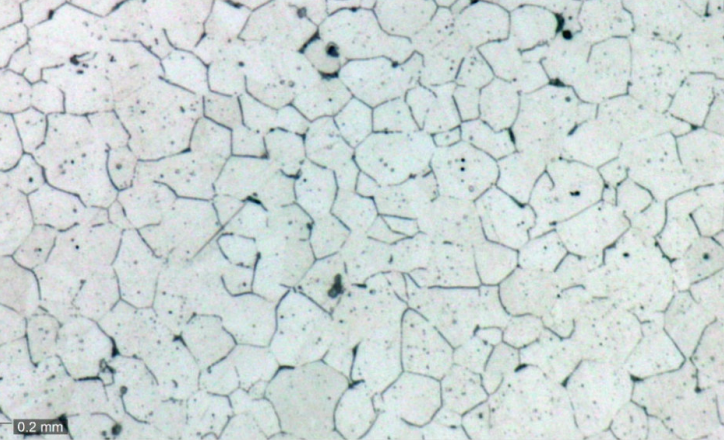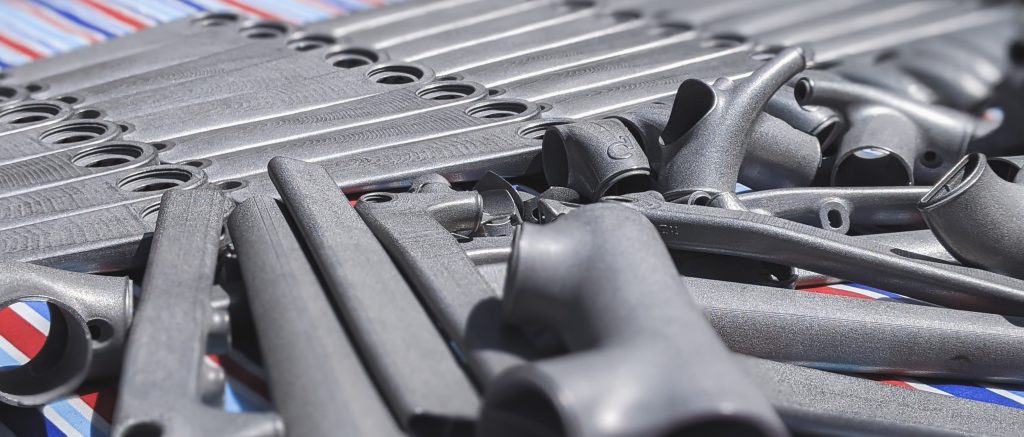German 3D printing technology developer Headmade Materials announced its move to join the ColdMetalFusion Alliance with other major industry players.
ColdMetalFusion is a collaboration of leading companies with decades of experience in sintering, additive manufacturing, and conventional industrial manufacturing. The Alliance members work together to offer customers in the metal manufacturing industry with services, equipment, materials, and software. Members include Farsoon technologies an industrial 3D printer manufacturer, PRES-X a post-processing solutions provider, Miba Group an industrial manufacturing company, and Element22 a titanium part manufacturing company.
“Thanks to ColdMetalFusion we were able to find applications where we can help customers change the rules of the game in their market. To enable this at a large scale, we are looking forward to forging robust and reliable standards together with the Alliance,” says Christian Fischer, Co-CEO of Headmade Materials.
In order to meet a wide range of application needs, Headmade Materials has already introduced its 316L and Ti6Al4V materials and plans to do the same with 17/4PH stainless steel and M2 tool steel. In addition, with the introduction of its M2 tool steel for ColdMetalFusion, Headmade Materials demonstrates its proficiency in processing particularly challenging metals. With these functionalities, Headmade Materials can assist clients with everything from application development and the creation of unique materials to large-scale manufacturing.

Headmade Materials’ industrial milestones
This year in February, Headmade Materials received up to €5.8 million in EU funding. Headmade envisioned using this investment to boost its expansion and speed up its material production after competing against over 1,000 other companies as part of the European Innovation Council (EIC) Accelerator Program, an initiative created to aid innovators to scale the advancement of emerging technologies.
Days after the EU funding, the company announced an additional €2.5 million investment, bringing its total funding to €10.2 million. The company’s Series A funding round was backed by existing shareholder btov’s Industrial Technologies Fund in addition to being led by AM Ventures, a seasoned investor in 3D printing start-ups. The investment announcement arrived just one week after Headmade Materials received €5.8 million through the European Innovation Council (EIC) Accelerator Program, a program designed to scale up new technologies.
“Headmade Materials is currently developing a broad range of key materials for the toolbox of application developers. The speed of this year’s development time makes us very enthusiastic about the future where we intend to provide tailor-made material solutions for our customers,” says Christian Staudigel, Co-CEO of Headmade Materials.

Pillars of additive manufacturing
The additive manufacturing industry is a wider sector that includes areas like medical, dental, aerospace, and many more. Various materials, software, equipment, and services are incorporated to streamline the manufacturing process.
Recently, Digital Metal, a Swedish 3D printer manufacturer, announced the availability of certified metal powder H13, also known as DM H13. H13 is used in forming tools such as extrusion dies and injection molds because it is an abrasion-resistant metal. With the addition of this certified metal powder to the Digital Metal material library, the number of mission-critical applications that can be fixed on-demand right where parts are needed will increase.
Furthermore, Nexa3D, a manufacturer of high-speed resin 3D printers, announced a collection of novel additive manufacturing products and partnerships at the Formnext trade show. Nexa3D has developed an end-to-end 3D printing workflow designed to help users access serial production using DyeMansion post-processing, Siemens’ PLC software, and its own QLS 820 system. In addition, the company has introduced a new line of ceramic, flexible, and clear resins, as well as installed machines at Xometry and Quickparts to provide clients with access to its technologies.
Elsewhere, FlashForge USA, a desktop 3D printer manufacturer, had begun taking pre-orders for a novel desktop machine with potentially broad dental manufacturing applications. The Hunter S, unlike many resin 3D printers, is open-material, which means it can precisely create crowns, bridges, models, surgical guides, and other dentistry parts from a larger third-party pool of materials. FlashForge USA has already validated 3D Systems’ NextDent resins for the system, indicating the profile of FDA-approved and biocompatible polymers that adopters can expect.
Follow this link for all the Formnext 2022 news.
To stay up to date with the latest 3D printing news, don’t forget to subscribe to the 3D Printing Industry newsletter or follow us on Twitter, or like our page on Facebook.
While you’re here, why not subscribe to our Youtube channel? Featuring discussion, debriefs, video shorts, and webinar replays.
Are you looking for a job in the additive manufacturing industry? Visit 3D Printing Jobs for a selection of roles in the industry.
Feature image shows titanium parts produced via CMF 3D printing. Photo via Headmade Materials.



